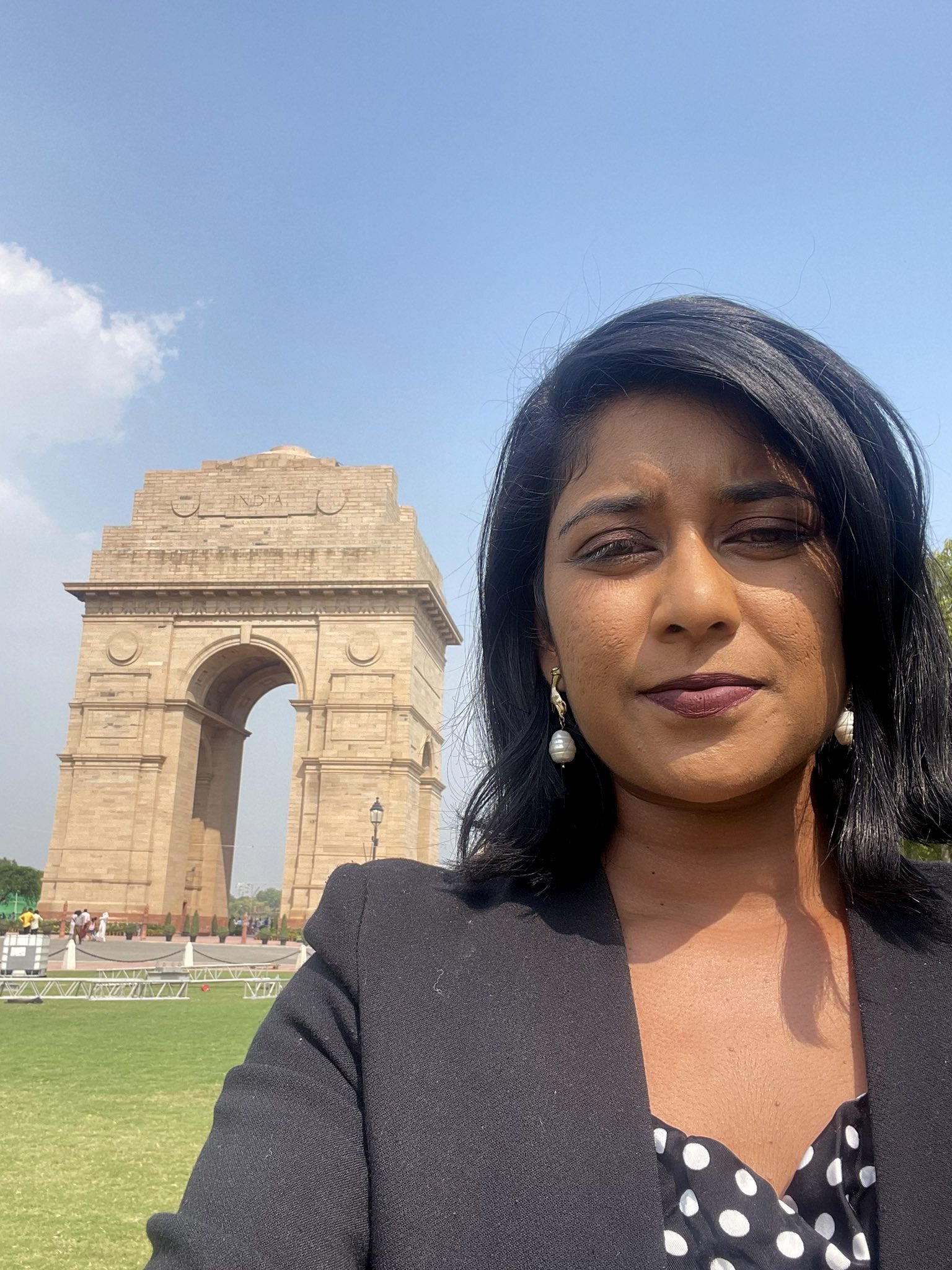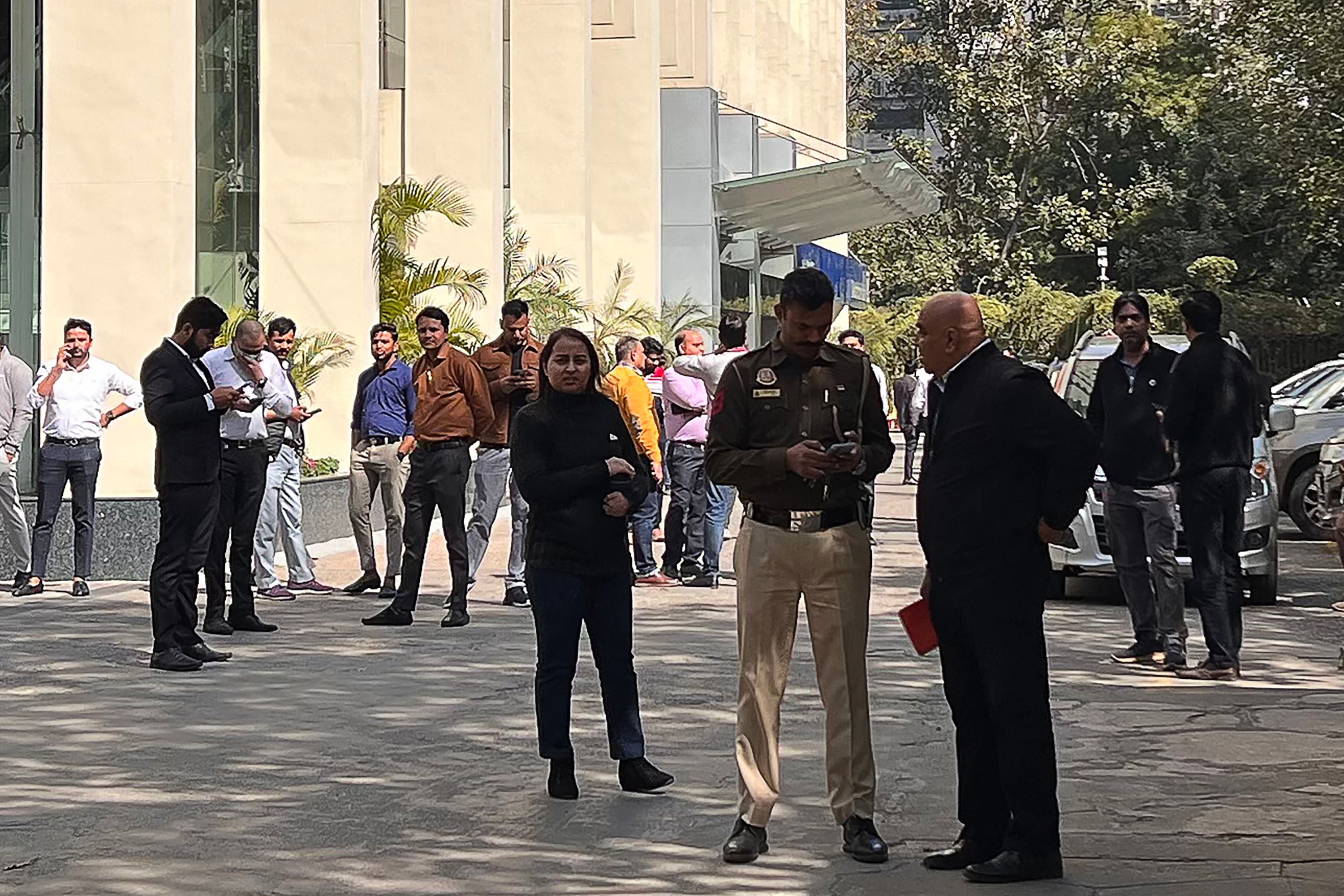Australian journalist forced to ‘leave India abruptly’ after reporting critically on Modi government
Avani Dias says she was told her reporting on Sikh separatist leader’s assassination had ‘gone too far’
Your support helps us to tell the story
From reproductive rights to climate change to Big Tech, The Independent is on the ground when the story is developing. Whether it's investigating the financials of Elon Musk's pro-Trump PAC or producing our latest documentary, 'The A Word', which shines a light on the American women fighting for reproductive rights, we know how important it is to parse out the facts from the messaging.
At such a critical moment in US history, we need reporters on the ground. Your donation allows us to keep sending journalists to speak to both sides of the story.
The Independent is trusted by Americans across the entire political spectrum. And unlike many other quality news outlets, we choose not to lock Americans out of our reporting and analysis with paywalls. We believe quality journalism should be available to everyone, paid for by those who can afford it.
Your support makes all the difference.An Australian journalist had to “leave India abruptly” after allegedly being told by the Narendra Modi government that she had “crossed a line”, deepening concerns about sliding press freedom in the country.
Avani Dias, the South Asia bureau chief of Australia’s national broadcaster ABC News, claimed that the Hindu nationalist government had made it “too difficult” for her to report from the country, including on the national elections that kicked off last week.
"Last week, I had to leave India abruptly. The Modi government told me my visa extension would be denied," she said on X. "After Australian government intervention, I got a mere two-month extension ... less than 24 hours before my flight."
“We were also told my election accreditation would not come through because of an Indian ministry directive. We left on day one of voting in the national election in what Modi calls ‘the mother of democracy’.”
In the final episode of her podcast, Looking for Modi, Ms Dias, who has worked in India since January 2022, said an official from India’s Foreign Ministry had called her to inform that her visa would not be renewed and she would have to leave the country in a couple of weeks.
She was reportedly told the decision was prompted by her coverage of the killing of Hardeep Singh Nijjar, a Sikh separatist leader who was shot dead in Canada last year.
“He specifically said it was because of my Sikh separatist story, saying ‘It had gone too far’,” Ms Dias said.
Nijjar’s killing strained ties between India and Canada after prime minister Justin Trudeau said his government had credible evidence of the involvement of Indian operatives in the 18 June assassination.
India has denied the allegations.
“It felt too difficult to do my job in India. I was struggling to get into public events run by Modi’s party,” the journalist said on the podcast.
“The government wouldn’t even give me the passes I need to cover the election, and the ministry left it all so late that we were already packed up and ready to go.”
“It’s by design. The Narendra Modi government has made me feel so uncomfortable that we decided to leave.”
Mr Modi is tipped to win a rare third term in the ongoing elections as he remains popular among the country’s Hindu majority.

The decision to allegedly block Ms Dias’s visa came after the Indian government issued a notice to YouTube to take down an episode of Foreign Correspondent, the ABC’s flagship international news programme, where she reported on Nijjar’s killing.
“Now when you try to watch it on YouTube in India, it says, ‘This content is currently unavailable in this country because of an order from the government related to national security or public order,’” the reporter said on her podcast, adding that similar work from other publications had also been “taken down” earlier.
An Indian government source has called the allegations “misleading and mischievous”, according to NDTV.
“Ms Dias was found to have violated visa rules while undertaking her professional pursuits,” the source said.
“Inspite of this, on her request, she was assured that her visa would be extended for the coverage of the general elections. Her previous visa was valid till 20th April 2024,” it added.
ABC managing director David Anderson said the broadcaster stood by Ms Dias’s reporting.
“The ABC fully backs and stands by the important and impactful reporting by Avani Dias during her time as ABC correspondent in India,” he said.
“Avani joins the Four Corners team as a reporter in coming weeks. The ABC believes strongly in the role of independent journalism across the globe, and freedom of the press outside Australia.”
Ms Dias’s departure comes amid rising concerns over India’s crackdown on the media. Foreign journalists and news organisations have reported coming under increased pressure from the Modi government, which has used its discretion over grant and renewal of visas as a stick against them.
Last year, tax authorities raided the offices of BBC in Delhi and Mumbai after the British broadcaster aired a documentary investigating Mr Modi’s role in the 2002 Gujarat riots that killed 800 Mulisms and 200 Hindus. Mr Modi was the state’s chief minister at the time.
There are currently at least seven journalists in jail in India, according to a 2023 report by the Committee to Protect Journalists.

In January this year, French journalist Vanessa Dougnact announced she was leaving India after almost two decades.
Ms Dougnact claimed that she was being prevented from working as a journalist in the country despite having Overseas Citizenship of India, a form of permanent residency, because the government deemed her reporting “malicious and critical”.
The World Press Freedom Index 2022 ranked India 161 among 180 countries in 2023.
The Independent has reached out to India’s Foreign Ministry for a comment.

Join our commenting forum
Join thought-provoking conversations, follow other Independent readers and see their replies
Comments